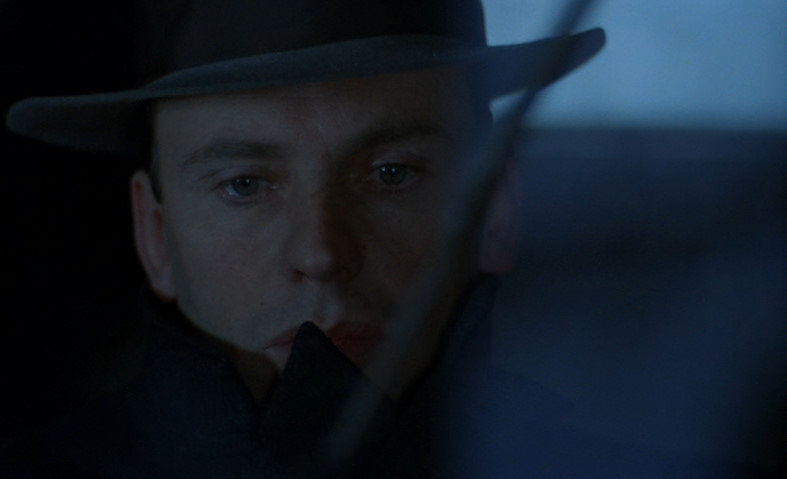 Having been on something of a creative slump over the last two decades, it's quite easy to overlook Bertolucci's achievements as a film maker. The Last Emporer was the last film of his that genuinely could be described as anywhere near greatness. Everything since seems to be less than fully realised and disappointing in comparison to his greatest films. Of course when you attain so much so young (Bertolucci was just 30 when he made this film), that creativity can be difficult to sustain long term. Still, this is nothing short of astonishing considering the youth of the director. It seems the work of someone far more mature.
Having been on something of a creative slump over the last two decades, it's quite easy to overlook Bertolucci's achievements as a film maker. The Last Emporer was the last film of his that genuinely could be described as anywhere near greatness. Everything since seems to be less than fully realised and disappointing in comparison to his greatest films. Of course when you attain so much so young (Bertolucci was just 30 when he made this film), that creativity can be difficult to sustain long term. Still, this is nothing short of astonishing considering the youth of the director. It seems the work of someone far more mature.A huge inspiration on New Hollywood, primarily Scorsese and Coppola, who paid tribute to one scene from this film in The Godfather Part Two. Such was the effect that it had on the latter that he hired Bertolucci's DoP Vittorio Storaro to work on Apocalypse Now. It's easy to see why because Storaro's work on The Conformist seriously is amongst the greatest cinematography you will ever see. Exceptionally innovative; shooting Trintignant's character (Clerici) from strange angles, using an incredibly fluid camera that seldom stays still (for instance, when Trintignant visits the Minister and the camera zooms out as he walks in the opposite direction), and capturing such iconic scenes, such as the opening scene with Trintignant's face coloured a shade of red from the neon lights outside his hotel room, and the leaves blowing in the wind in his mother's garden that Coppola would later reference.
The Conformist works so well because there are numerous remarkably talented individuals involved - the source material is derived from Alberto Moravia, who wrote the novel on which Godard's 'Le Mepris' was based (which is one of my favourite films). Georges Delerue, who scored 'Le Mepris', 'Jules et Jim' and 'Shoot The Pianist' was the film's composer, and then you have Jean-Louis Trintignant who was so great in Kieslowski's 'Three Colours Red' and the stunning Dominique Sanda in lead roles.
Trintignant is a mid-level civil servant in 1930s Italy who throws his lot in with the Fascists, not solely to enhance his career prospects, but mainly to achieve normality. He wants nothing to be anonymous and blend in with the crowd - he takes a wife he doesn't really love (he explains that normality is marriage, children, having a family), joins the Catholic faith, etc. But why this obsession? Does it go back to a nightmarish incident he experienced as a child, which Bertolucci shows us in flashback? Or the issues with his parents - his father is now in an asylum and his mother is drunk and seemingly having a fling with the chauffeur. The repeated emphasis on normality arguably reflects Bertolucci's thoughts about the nature of Fascism; that it can be achieved through mere compliance and acceptance.
The ultimate act of fitting in becomes accepting an order to assassinate his former university professor, now a dissident living in Paris with his young wife, and considered dangerous and provocative by the authorities. However, the feelings that he starts to develop for the man's wife complicating matters. Professor Quadri and his wife immediately suspect Clerici and question his motives to reacquainting himself with them, although this never dissuades them from meeting, or Quadri's wife having a short-lived affair with Clerici. After the inevitable, Bertolucci shows the aftermath of defeat in war; scenes of Mussolini's statue stolen and dragged through the streets, of young Italians celebrating freedom from dictatorship, and former Fascists turning on each other. Clerici is shown as a political chameleon in that sense, changing his political stance according to the status quo, according to what would help him achieve "normality".
I'm reminded of the phrase attributed to Edmund Burke; "the only thing necessary for the triumph of evil is for good men to do nothing" when watching The Conformist. For Bertolucci, Fascism is the desire not to act, to accept and to remain passive. 4.5/5
No comments:
Post a Comment